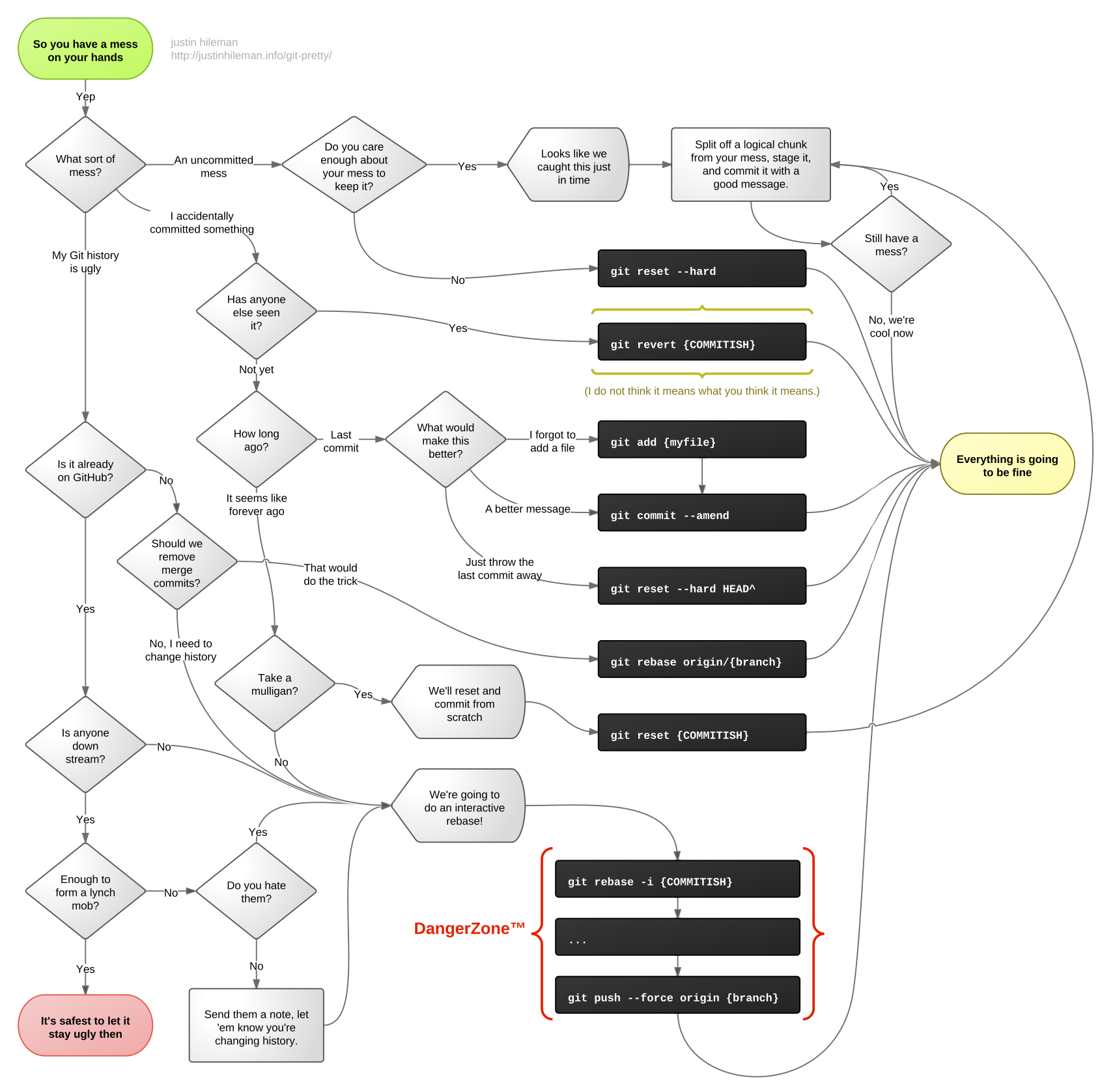During my career I discovered that there is a general aversion to merge conflicts. I've seen posts on reddit and on Twitter that people are trying to avoid them. People are writing tools for their IDE to avoid running in conflicts and delay their coding to avoid them.
I want to explain why merge conflicts are not a bad thing and why try to avoiding
them often costs you more time than resolving them.
In this article we will take a focus on git and its usage of merge conflicts.
Let's start with some explanation!
The word "conflict" bas a negative flavor. A merge conflict in a version control system (VCS) like just wants to tell you: "Hey, I need your help to find the right version of the File". Git can't identify what the right version is that should be used. So the VCS needs human eyes to tell which is correct.
That's is basically it. But let's dive in: So how does such a merge conflict looks like?
Let's imagine we have 2 branches the master and a feature-a branch.
Let's first look on the code in the master
var $salary = user.getSalary()
$salary = $salary + 2;
return $salaryYou want to edit the file and want to add 5 instead of 2 . So your code would look like this
var $salary = user.getSalary()
$salary = $salary + 5;
return $salaryWithout noticing someone else updated the code to this:
var $salary = user.getSalary()
$salary = $salary + 10;
return $salarySo when you try to merge you will receive a merge conflict. The merge conflict looks like:
var $salary = user.getSalary()
<<<<<<< HEAD
$salary = $salary + 5;
=======
$salary = $salary + 10;
>>>>>>> feature-a
return $salaryIt may seem cryptic and may overwhelm you a bit (Especially when your changes are getting bigger)but is very simple.
<<<<<<<means this are the changes that are on the current branch e.g. your master and varies from your previously checkout version of this branch.=======is just the separator between the current code on the master and your code on the other branch>>>>>>>is the end of the changes of your branch.
So in fact you just need to tell git: "Ok that's the state I want". So just modify the code, so that you think this is correct.
Merge conflicts are natural. They are part of the development process and should be handled as such. It is necessary to have merge conflicts, imagine the time when the whole changes were simply overwritten. You had to the conflict resolving manually or wait until you can even start to code.
With merge conflicts we have a proper tool, that can be used to identify interferences in the code base. We just need to tell git what is correct and what not. There is no more need to wait to start your development. You can work entirely independent of the state from other developers.
There a several tools that can be used to resolve merge conflicts before they happen on a big scale.
Rebase. This word spread fear among some engineers. The best conversation I had was the following:
Colleague: "Hey Niels, Gitlab shows me that I have merge conflicts with the
current branch."
Me: "Well you could rebase your branch and force ..."
Colleague: "REBASING? Are you crazy? For such a simple task I shall rebase?"Well end of story he merged by hand and history of the feature branch looked like my desktop table: A mess.
So what is rebasing is changing the history of your branch. You
Some simple rules:
Never, never, never rebase the master
You should not rebase shared branches (branches with where multiple people use)
If you are working alone you can rebase as much as you want without hesitation. Try to understand how rebasing works. Don't be afraid of it.
If you look at social media or in actual work enviroments you always find discussion, where someone says something familiar as: "That's all nice, but I can't do that if my feature branch is too big.".
I totally agree, but often its the fault of the process and the people involved and not the tools fault. Big branches with a lot of changes are often not necessary and can be separated into smaller chunks that can be handled a lot better, than big changes.
Blame the established process, try to improve it, together with your team.
Big changes have a lot of flaws: it can be hardly reviewed, the development process is hard to follow and to resolve merge conflicts on it is like working in hell.
Breaking your changes from big changes into smaller changes requires discipline. Discipline to change the workflow and to think in smaller steps.
But its worth it. Encourage a culture where big sudden changes are considered as flaw and as something you as community don't want.
We are working with git, so have the power to revert the changes. Don't be afraid to break things you can also fix them.
This is still my favorite image to solve git problems for people who are afraid if something went wrong (by Justin Hileman):
 :
:
You can follow such commands but you should understand what happens when executing them.
Most people try to remember just a few commands that they use on a daily basis. But these few commands won't help you if you don't understand their concept.

Don't just learn the execution order of some commands. Try to understand what the concept behind git is and not just the commands. A good start is the official (and free) git book: https://git-scm.com/book/en/v2 Please take your time at work or at home to understand this.
So please don't consider merge conflicts as evil. Accept them as a process you need to do and learn about them.
If you want to try how good you are at git, try this awesome application: https://learngitbranching.js.org